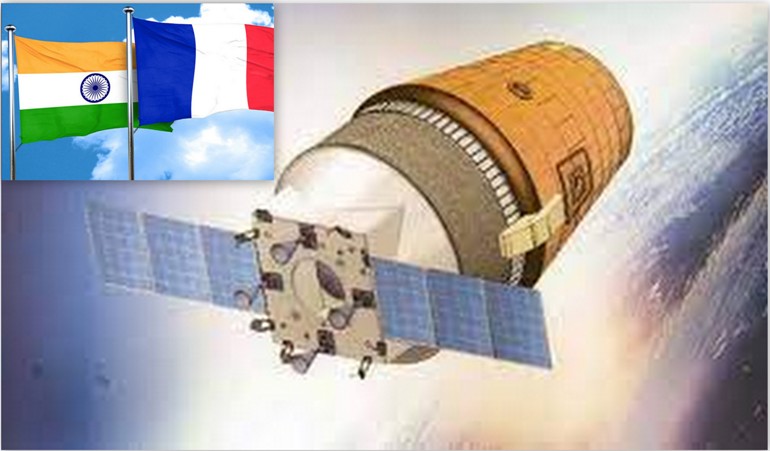An agreement for the cooperation on India’s first human space mission was signed between the space agencies of India and France on Thursday, the French space agency CNES said. The first human space mission from India has been named Gaganyaan. The agreement was announced during the visit of French Foreign Minister Jean-Yves Le Drian to the ISRO headquarters. CNES has been asked by ISRO to help in preparing Gaganyaan missions & to serve as the single European contact for them.
CNES said, “Under the terms of the agreement, CNES will train India’s flight physicians & CAPCOM mission control teams in France at the CADMOS centre for development of microgravity applications and space operations at CNES in Toulouse and at the European Astronaut centre (EAC) in Cologne, Germany.”
CAPCOM stands for capsule communicator which describes the works of the people who aid in space flights in mission controls. Important associated functions for which specific personnel are deployed at the Mission control centres include Flight Operations directorate (FOD), Altitude determination and control officer (ADCO), Communication and tracking officer (CATO), Extravehicular activity officer (EVA), TELMU (Telemetry, electrical, EVA mobility unit officer, Retrofire officer, FIDO (Flight dynamics officer) among others.
The Indo-French agreement provides for the CNES to support implementation of a scientific experiment plan on validation missions, exchange information on food packaging and the nutrition programme, and above all the use by Indian astronauts of French equipment, consumables, and medical instruments.
Also Read: Mars missions-Mariner to perseverance steps taken towards the red planet
French equipment developed by CNES, tested and still operating aboard the International Space Station (ISS) will therefore be made available to Indian crews. These devices had been previously tested by Thomas Pesquet, who is set to make his second flight to the ISS on April 22 for the Alpha mission. Fireproof carry bags made in France will also be supplied by CNES. These carry bags would be needed to shield the equipments from shock & radiation.
The CNES further added, “This cooperation could be extended into the future to parabolic flights operated by Novespace to test instruments and for astronaut training, as well as technical support for the construction of an Astronaut training centre in Bangalore.”
The orbital spacecraft project named Gaganyaan was kicked off in August 2018, and it was originally intended to send astronauts from Indian soil to mark the 75th anniversary of India’s independence in 2022. The cost of the Gaganyaan mission has been calculated to be about Rs 10,000 crores. The crew module of Gaganyaan is a fully autonomous (12000 lb) spacecraft, powered by liquid propellants, designed to carry a three-member crew to orbit & return to earth safely.
After two non-crewed orbital flight demonstrations of the spacecraft, a crewed Gaganyaan is scheduled to be launched using a GSLVMk III launcher, possibly by early 2023. The first non-crewed unmanned mission will be launched in December 2021.





